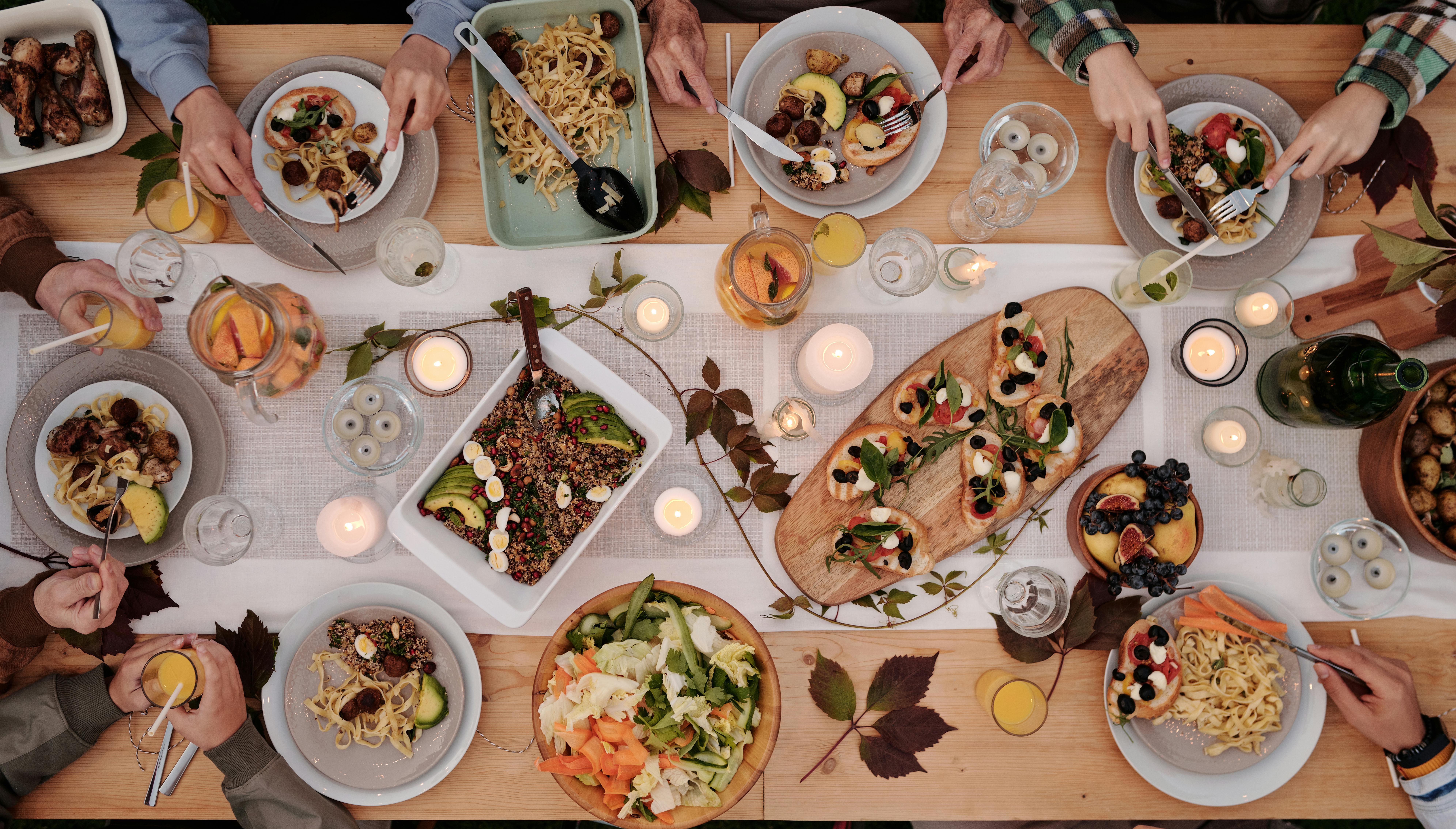Amid a world of fast-paced service and digital fatigue, there’s a quiet return to dining that feels more intentional, rooted in connection, conversation, and story.
Supper clubs are re-emerging as a powerful format for immersive dining experiences that do more than serve food: they build community, spark emotion, and celebrate narrative.
What Exactly Is a Supper Club?
A supper club is a curated dining experience, often ticketed and set within an unusual or private venue, where the guest list is intimate, the menu is set, and the evening unfolds around more than just a meal.
Whether hosted by a chef, artist or cultural collective, supper clubs merge hospitality with theatre, storytelling and social exchange. It might be a candlelit dinner in a warehouse loft or a storytelling-led tasting experience in a chef’s private home.
Supper clubs welcome guests as part of a shared community moment, encouraging conversation, connection, and a sense of belonging that extends beyond the meal.
As we explore in TGP International’s F&B Trends Report, “Dining is becoming more social and experience-led—driven by changing guest expectations, competitive pressures, and a broader cultural shift toward connection, play, and shared moments”. Supper clubs are emblematic of this shift.
Why Now? A Cultural Reawakening

The resurgence of supper clubs is no accident. We’re in an era that craves depth over pretence. As consumers grow increasingly critical of brands without purpose, they’re drawn to concepts that feel grounded in authenticity and emotional resonance.
More than 78% of consumers globally say they value real-world experiences in 2024, particularly those that offer shared memories over individual transactions. Supper clubs deliver exactly that: one-off moments curated with care, where food is the entry point but not the end goal.
An example of this shift is Dinner for One Hundred (D4100) in London—a concept initially created to address social isolation, which has since evolved into a collective gathering point for a growing community. In this format, food is just one layer of a wider experience designed to foster connection and togetherness.
Discover More Trends in Our F&B Trends Report
Thematic Dining

Today’s supper clubs borrow freely from adjacent creative worlds such as music, fashion, wellness and design, crafting multisensory experiences that resonate far beyond taste. From storytelling menus and chef-hosted evenings to themes like seasonal rituals, poetry, or folklore, the goal is to transport guests through narrative.
This reflects a broader trend in experiential dining, where formats like “Eatertainment” and collaborative campaigns between chefs and artists are helping redefine what hospitality looks like. These experiences sit comfortably within the rise of competitive socialising environments, where people seek interaction.
In this context, the flexible, small-scale nature of supper clubs also allows operators to test ideas, activate underused venues or build new followings, while keeping the guest at the heart of the story.
Crafting an Immersive Supper Club Experience

While some supper clubs are becoming more refined, many still grow from something simple and personal. A chef cooking for friends. A creative host turning a space into a story. These gatherings often begin as natural extensions of existing communities rather than commercial concepts.
This is part of their appeal. Supper clubs resonate because they feel honest, intimate and thoughtfully paced.
As these experiences grow in ambition, they often layer in elements of design, narrative, and structure. But they work best when they preserve a sense of spontaneity and warmth. Whether hosted in a private home, a converted gallery, or a tucked-away rooftop, the most memorable supper clubs tend to follow a few core principles:
-
Narrative first – A clear theme or story gives the evening shape and meaning.
-
Atmospheric design – Lighting, texture, scent, and sound all contribute to a rich sensory environment.
-
Natural flow – The experience should unfold at an easy rhythm, allowing guests to relax and engage.
-
Thoughtful guest mix – A well-considered crowd can be the difference between a good supper club and a great one.
Supper Clubs and the Shift Toward Purposeful Dining

Supper clubs offer a contemporary, flexible form of hospitality — one that reflects shifting cultural values and fosters genuine connection through shared moments, whether by spotlighting local producers, embracing wellness or social causes, or creating immersive, community-driven dining experiences beyond the bounds of a traditional restaurant.
-1.png?width=3330&height=698&name=TGP%20International%20Logo%20White%20(1)-1.png)



